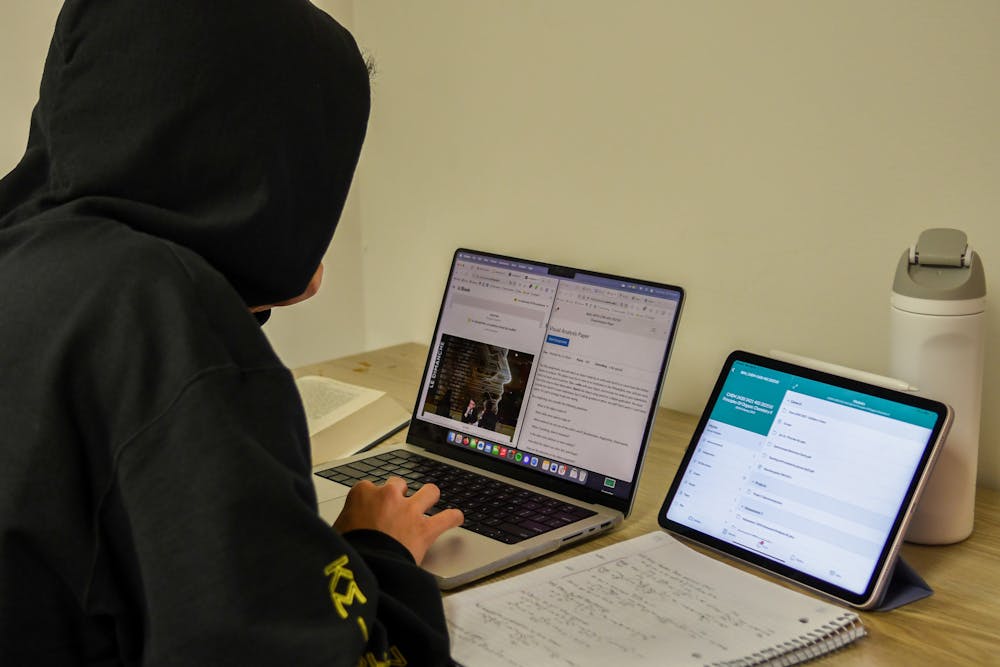I looked down at my planner, organizing my schedule for the next week. Classes, homework, clubs, internships, recruiting … trying to fit in the gym, showering, and eating. “I haven’t practiced piano in two weeks,” I thought to myself. “I’ll try to find time on Wednesday.”
I did not.
Oftentimes, when students come to college, they find themselves busy, be it with academics, extracurriculars, or social events. Among these necessary activities, it may be difficult for them to find time for hobbies or talents they pursued in high school. I, for example, was an avid pianist before attending Penn, practicing every day. Now, I’m lucky enough if I find time every one to two weeks to sit down for 30 minutes. It’s painful because it was a large part of my life, and it feels like I’m losing a piece of myself when I don’t practice.
Overloading and overworking are common among the student body at Penn for various reasons. Some may feel external pressure from impressive classmates or influence from parents. Others sense an internal force — a competitive mentality or even a fear of being bored. They maximize their credit load. They network, intern, work, and join clubs in hopes of not feeling lonely or depressed.
It may feel like we are constantly living our “innie” lives. For those that don’t understand the “Severance” reference, an innie is our identity while we are at work or, in this case, school. The opposite “outie” is used to describe us living the rest of our lives, creating memories while not confined to our jobs. In the show, the “innies” were not always only used for work; in some cases, they were an avenue to escape the hardships of the outside, “outie” world.
By overworking, Penn students are perpetually stuck in this inner world. They evade their feelings, which may result in their exacerbation in the future. This trend isn’t only Penn-specific. Other universities have stressed college students — pressure to secure a job after college has grown and recruiting timelines have quickened. In fact, 80% of college students reported feeling overwhelmed. However, Penn is known to have one of the most depressed student bodies, and without collectively working to fix the status quo, competition may lead to mental health problems and extreme situations like suicide.
When humans don’t savor their lives — don’t enjoy every day, let alone week — they run the risk of depression. Their reality doesn’t correspond to what they desire. They have no pleasure and don’t form memories. Surface-level “connections” are formed for networking, but many of them are meaningless and transactional, only consummated for personal gain. They may also feel unfulfilled and pressured.
This isn’t to say that life should be about pursuing happiness. In fact, placing excessive emphasis on happiness reduces a person’s ability to savor positive experiences. It is difficult, though, when the environment around us is consistently pushing the emphasis on “work.” Students may find themselves brainwashed, or “severed.” It is also strenuous when mental health resources are limited, hard to access, or just not talked about enough. Though delayed gratification may be the definition of maturity, persistent stress and working without awareness are dangerous. One cannot simply attribute life as a culmination of achieving the “ends.” Life is all the means combined. The journey. The in-between.
It isn’t about labeling something in life as “good” or “bad” — life is about being aware that you are living. Similar to Severance, Penn and other competitive institutions may be compared to “Lumin” — a faceless organization profiting on the work of innies (students), exploiting eager students’ competitiveness and the work of underpaid professors. Students are molded to create the ‘perfect worker’ for corporate jobs after college, subjecting them to a risk of identity loss and the deprivation of talents.
Imagine yourself in the future, wanting to return to yourself at this age. Live your life every day as a conscious human. Integrate balance into your life. We cannot escape stress. But we can change how we view it and how we tackle it. After all, we all live in separate timelines — why should we compare ourselves to others? Moreover, wouldn’t shielding ourselves by creating an “alter-ego” identity similar to the “innies” generate a constant cycle of not being content with the status quo?
EMMA CRASNITCHI is a College first year studying economics from Northern Virginia. Her email is emmacras@sas.upenn.edu.









